Extended Project Qualification
Head of Department: Mr Sam Forsyth
Exam Board: AQA
Qualification Name: Level 3 Extended Project Qualification
Qualification Code: 7993
What will you study:
Research Skills:
In this, the taught part of the course, students develop their research skills, partly through the main Sixth Form lecture and skills programme and partly in weekly skills lessons. We make regular visits to our partner university (Durham University), where students receive teaching and guidance from experienced researchers, and also have access to both universities’ reference libraries.
The skills that are covered include:
- Project management techniques
- Ethical and safety considerations
- Appraisal and management of risks
- Finding academic resources (the Dewey decimal classification system and the use of online journals)
- Critical evaluation of sources
- Collection and analysis of quantitative and qualitative data
- Statistical significance of data
- Referencing styles and the avoidance of plagiarism
- Interpreting sources for reliability and validity
- Structuring research reports
- ICT and presentation skills
Research Project:
Alongside the new skills that students learn, they need to conceive, plan, and implement a research project of their own choosing. This allows students to extend their learning in one of the subjects that they are already studying, or explore an interest in a new area, such as one they might consider following at university. Students are expected to be innovative and independent in their research; they make decisions, are critical and reflective, and solve problems.
Each week, the student meets with their project supervisor for a short, individual supervision meeting. The supervisor’s role in these is to challenge and guide, but not to direct the student. Students are asked to justify their decisions and explain their reasoning as they draw conclusions, and this helps them to remain critical. Their project may take up to a year to complete, and students produce either a 5000-word dissertation-style research report, or a research-led artefact accompanied by a shorter report. Alongside this, students are expected to record their and their decision-making processes in a production log. At the end of their project, students make a presentation to friends and teachers detailing their path through the project and their findings.
How you will be assessed
Production Log: A log document, provided by the exam board, which is to be completed by the student at key points in their project. Internally assessed and externally moderated coursework.
Product: 5,000 word research report, or artefact plus shorter report. This can also be accompanied by other relevant evidence, as determined by the student. Internally assessed and externally moderated coursework.
Presentation: Presentation to students and teachers, followed by a Q&A session. Internally assessed and externally moderated coursework.
Why choose the EPQ?
Everyone will need to carry out research at some point in their life. Whether it be as part of academic study at university, producing a report for an employer, or simply to aid in decision-making in our own lives, being able to provide in-depth information and justified conclusions on a given topic is an important skill. However, without a clear path to follow, research can be extremely time-consuming and unfruitful. The EPQ course aims to help students learn the skills and gain experience in research methods and project management, while at the same time affording students the opportunity to carry out some research of their own into a topic that thrills them.
Course requirements
The EPQ course begins in the January of the Lower Sixth year, allowing students a few months to settle into their other subjects first. The course is available to all students in the Sixth Form, but in order to be accepted onto the course, students need to submit a structured and feasible research proposal.
Related subjects in the Sixth Form
The EPQ can complement any Sixth Form study programme of three or four other courses.
Where could it lead?
Completing the EPQ course helps students to be well prepared with the skills and mind-set needed for success with independent study. This course provides students with an excellent preparation for university. Acknowledging this, many universities now offer an alternative, lower grade entrance offer in your main subjects if you also achieve a top grade in your EPQ.

